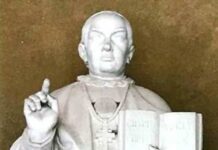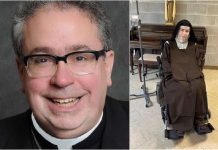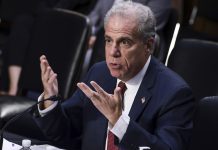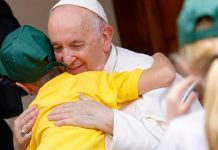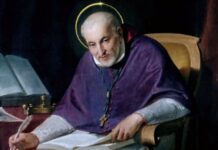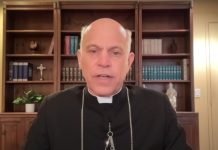“The Holy See cannot yet account for all of the investment properties that it owns specifically around Rome and in Italy. And there’s a huge task to go through to make sure it identifies properly the ownership of each — whether it’s owned by a diocese, whether it’s owned by the Vatican, whether it’s owned by a parish, or somebody else — and then to valuate it to make sure that it’s properly accounted for in the balance sheets.”
“So that’s one real area where the Holy See needs to be moved quickly up to date.”
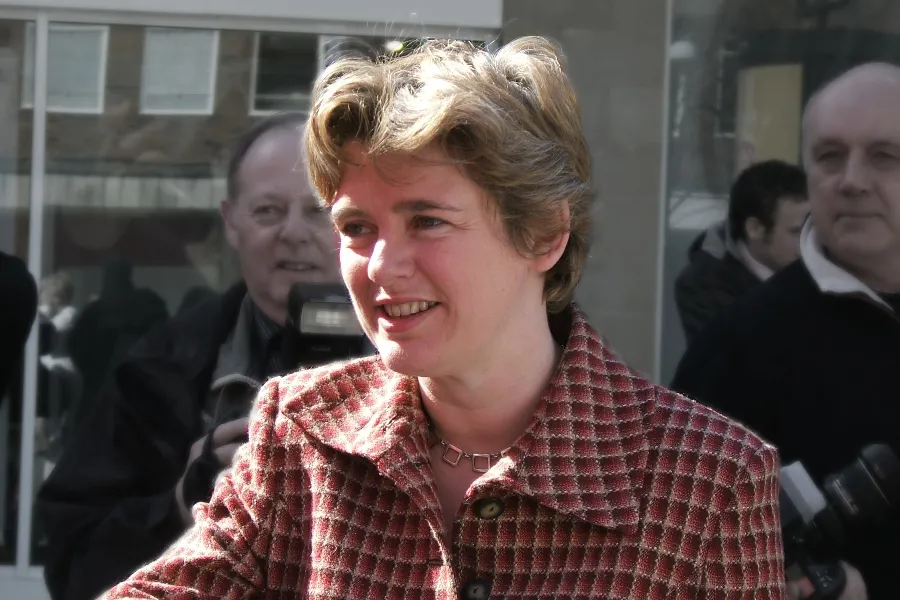
The Council for the Economy is also currently implementing an investment policy for the Vatican and “a huge training program” in financial standards for those who work in its departments and dicasteries, according to Kelly.
“I’m actually very encouraged by the steps that I’ve seen, even though there’s so much to do and so far to go,” she said.
Pope Francis established the Council for the Economy in 2014 as part of his program of financial reform. Kelly was appointed to the council for a six-year term last August along with five other women with backgrounds in banking, finance, asset management, and international law.
“There’s a real recognition that it’s now very important at the heart of the Church to have lay experts involved in overseeing the Vatican accounts and policies and so forth. And that is important, not just in its own sake, but also for the credibility of the process,” Kelly said.
“The ambition is to have international accounting standards applied in full across the Holy See,” she said. “That’s not a position which we have arrived at yet, but it is one to which we aspire.”
Kelly spoke at the webinar series, “Inspiring Trust: Church Communications and Organizational Vulnerability,” offered by the Pontifical University of the Holy Cross in Rome. The university is entrusted to Opus Dei, with which Kelly is associated.
“To be brutally honest about it, from my perspective of the council’s perspectives … it’s not clear how funds have been flowing and how they’ve been managed because the transparency hasn’t been there,” she said.
Kelly is adamant that “once that transparency is there, and international standards are applied, then you can start talking altogether differently about the Vatican’s role and its responsibility and how it manages money, and so forth.”
“If someone’s going to put money into the Peter’s Pence account, they need to know that that money is being well spent. And at the moment, you can’t say definitely that we can show that, but we’re well on the way I think to be able to do that before too long,” she said.
(Story continues below)
Subscribe to our daily newsletter
At Catholic News Agency, our team is committed to reporting the truth with courage, integrity, and fidelity to our faith. We provide news about the Church and the world, as seen through the teachings of the Catholic Church. When you subscribe to the CNA UPDATE, we’ll send you a daily email with links to the news you need and, occasionally, breaking news.
As part of this free service you may receive occasional offers from us at EWTN News and EWTN. We won’t rent or sell your information, and you can unsubscribe at any time.
The Council of the Economy was very focused on cost restraint in setting this year’s budget, asking Vatican departments to come up with reductions in their spending, Kelly explained.
The Vatican’s budget, which already operated on a deficit, took another hit in 2020 and the beginning of 2021, when the Vatican Museums, a major source of income, was forced to close for months.
For the Holy See, the coronavirus crisis also meant collapsing market investments, uncertain income from real estate investments, and diminished contributions from the Church around the world.
“The Holy See suffered, along with every other organization, or many other organizations, in the pandemic, and that’s not surprising. And the question really for the council is how much of that is temporary and how much of that will bounce back,” she said.
“And it is the case that fundraising has been severely dented through the COVID crisis, not surprisingly, as it has been felt right throughout the Church,” she said.
“So, you know, it is one of the areas in our minds, as we think about how to restore the reputation and how to create a strong reputation for how the Holy See manages finances.”






